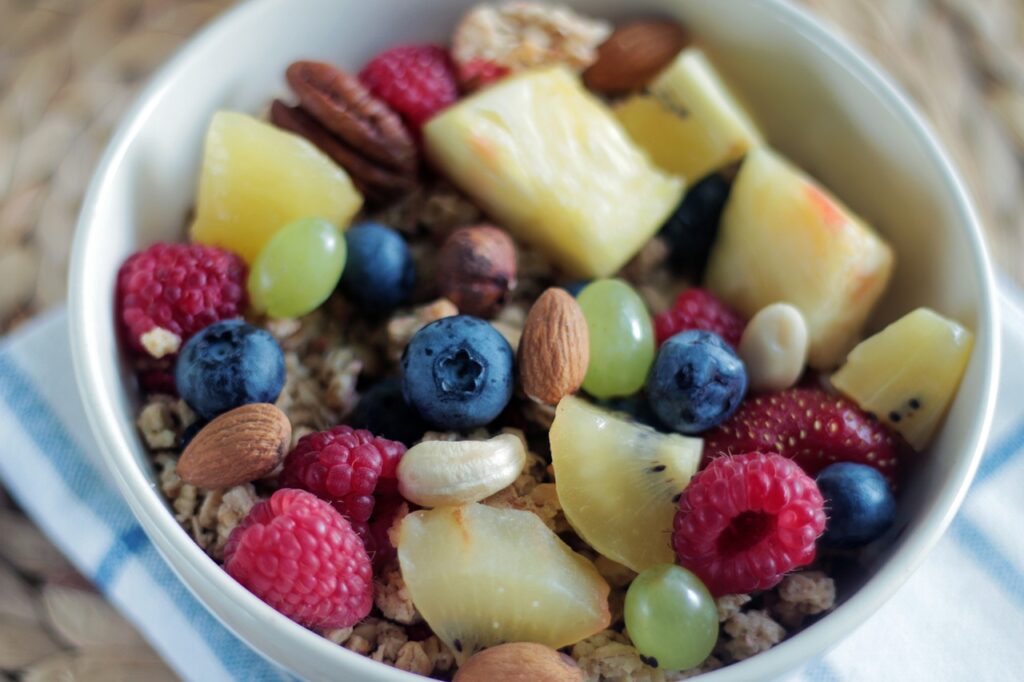When you're deciding between the Mediterranean and Caveman diets, it's vital to weigh up what suits your lifestyle and health goals best. The Mediterranean diet offers heart health benefits and supports brain function with its balanced intake of carbs and fats. On the other hand, the Caveman diet, also known as the Paleo diet, is praised for its high protein and low carbohydrate approach, which can improve blood sugar control and reduce inflammation. But which one truly reigns supreme? To delve into the nuances and impact on weight loss, heart health, and ease of adherence, let's explore further. When it comes to weight loss, the Mediterranean diet has been shown to be effective for shedding pounds and maintaining a healthy weight. On the other hand, the Caveman diet’s focus on protein and low carbs can also lead to weight loss, but it may not be sustainable for everyone. In a direct atkins vs caveman diet compared, it becomes evident that both have their unique strengths and weaknesses when it comes to promoting overall health and well-being.
Nutritional Profile Comparison
When comparing the nutritional profiles of different diets, you'll quickly notice how they cater to various health needs and goals. The Mediterranean diet emphasizes whole grains, fruits, vegetables, lean proteins, and healthy fats. Its macro ratio typically leans towards high carbohydrates, moderate fats, and low proteins. This balance provides a steady energy source, aiding in sustained physical and mental performance.
On the other hand, the Caveman diet, or Paleo diet, focuses on consuming foods presumed to be available to our Paleolithic ancestors. Its macro ratio is generally high in proteins and fats, with low carbohydrates. This composition aims to mimic ancient eating patterns, potentially aiding in muscle growth and fat loss.
Both diets offer distinct micronutrient benefits. The Mediterranean diet is rich in vitamins A, C, and E, along with essential minerals like magnesium and potassium, thanks to its varied plant-based components. Conversely, the Caveman diet provides ample B vitamins and iron, primarily from its emphasis on meat and fish.
Understanding these differences in micronutrients and macro ratios helps you choose a diet best suited to your specific health objectives and lifestyle needs.
Health Benefits Overview
With an understanding of the nutritional profiles of different diets, it's important to explore the health benefits each one offers. The Mediterranean diet, rich in fruits, vegetables, whole grains, and healthy fats like olive oil, has been linked to numerous health benefits. It's known for promoting heart health, reducing the risk of chronic diseases, and supporting brain function. This diet's food culture emphasizes moderation and variety, which can align well with your personal values of balanced eating.
On the other hand, the Caveman or Paleo diet focuses on whole foods that our ancestors might have consumed, such as lean meats, fish, nuts, and seeds, while excluding processed foods, grains, and dairy. This approach can lead to improved blood sugar control, reduced inflammation, and better digestive health. If your personal values prioritize natural, unprocessed foods, this diet might resonate with you.
Both diets offer unique health benefits rooted in their respective food cultures. Choosing the right one depends on which health benefits align with your personal values and lifestyle. Remember, the best diet is one that you can maintain and enjoy, contributing to your overall well-being.
Weight Loss Potential
Many people turn to specific diets not just for health benefits, but to shed unwanted pounds. When it comes to weight loss potential, both the Mediterranean and Caveman (or Paleo) diets offer unique approaches. The Mediterranean diet focuses on a macronutrient balance, emphasizing whole grains, fruits, vegetables, lean proteins, and healthy fats like olive oil. This balance helps you manage your calorie intake without feeling deprived, making it easier to stick to long-term.
On the other hand, the Caveman diet eliminates processed foods and grains, advocating for a slow carb approach. By focusing on meats, fish, fruits, vegetables, and nuts, you're naturally reducing your carb intake and avoiding spikes in blood sugar levels. This can lead to more stable energy levels and fewer cravings, which can support consistent weight loss.
Both diets encourage eating whole, nutrient-dense foods, but the Mediterranean diet's emphasis on variety and balance might make it easier for you to maintain over time. Meanwhile, the Paleo diet's slow carb approach can be particularly effective for those looking to reduce their carbohydrate intake substantially. Ultimately, your weight loss success will depend on which diet aligns better with your lifestyle and preferences.
Heart Health Impact
Heart health is a critical factor to ponder when choosing a diet. The Mediterranean diet emphasizes whole grains, fruits, vegetables, and healthy fats like olive oil, all shown to reduce cardio risk factors. This diet is rich in antioxidants and anti-inflammatory foods, which help lower inflammation triggers known to harm your heart. By incorporating fatty fish, nuts, and seeds, you're giving your body the omega-3 fatty acids it needs to support cardiovascular health.
On the other hand, the Caveman, or Paleo diet, focuses on lean meats, fish, fruits, and vegetables while cutting out processed foods, dairy, and grains. This approach can also lower cardio risk factors by avoiding refined sugars and unhealthy fats. However, the high intake of red meat could potentially introduce inflammation triggers, which might counteract some of the heart health benefits.
When you compare the two, the Mediterranean diet generally shows more consistent evidence supporting heart health. Its emphasis on plant-based foods, healthy fats, and lean proteins creates a balanced approach that minimizes cardio risk factors and reduces inflammation triggers. So, if heart health is your main concern, the Mediterranean diet might just have the edge.
Ease of Adherence
While heart health often takes center stage when choosing a diet, how easy it is to stick to your chosen eating plan can make or break your long-term success. The Mediterranean and Caveman diets both have their perks, but let's see how they fare when it comes to ease of adherence.
Mediterranean Diet:
- Daily Habits: The Mediterranean diet aligns well with common daily habits. You'll find it easy to incorporate fruits, vegetables, and whole grains into your meals without making drastic changes.
- Social Pressures: This diet is socially versatile. Whether dining out or at a family gathering, Mediterranean options like salads, fish, and olive oil are readily available.
- Variety: The wide range of allowed foods makes it less monotonous, reducing the temptation to cheat.
- Preparation: Meals can be simple to prepare, often requiring minimal cooking skills.
Caveman Diet:
- Daily Habits: This diet requires significant changes to your daily habits. Cutting out grains, dairy, and processed foods can be challenging.
- Social Pressures: Social gatherings can be tricky. You might struggle to find Paleo-friendly options at restaurants or parties.
- Variety: The limited food choices can make the diet feel restrictive over time.
- Preparation: Meal prep can be time-consuming, often needing more effort to stay true to the diet's principles.
Ultimately, the Mediterranean diet tends to be easier to maintain amid daily habits and social pressures.
At a Glance
In the end, choosing between the Mediterranean and Caveman diets boils down to your personal goals and preferences. If you're aiming for heart health and brain function, the Mediterranean diet might be your best bet. On the other hand, the Caveman diet could be ideal if you're focused on blood sugar control and reducing inflammation. Both diets prioritize whole, nutrient-dense foods, so either choice will support your journey to peak health.




